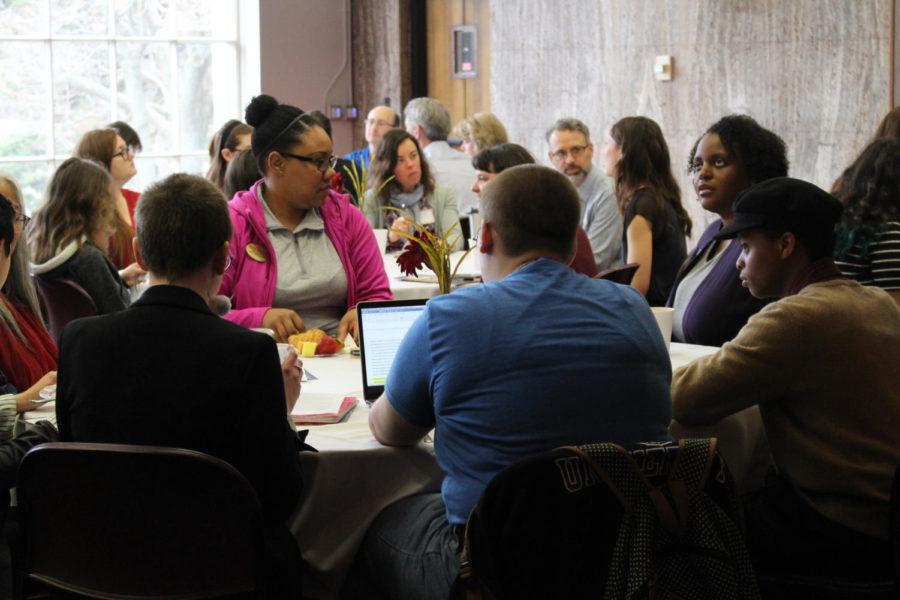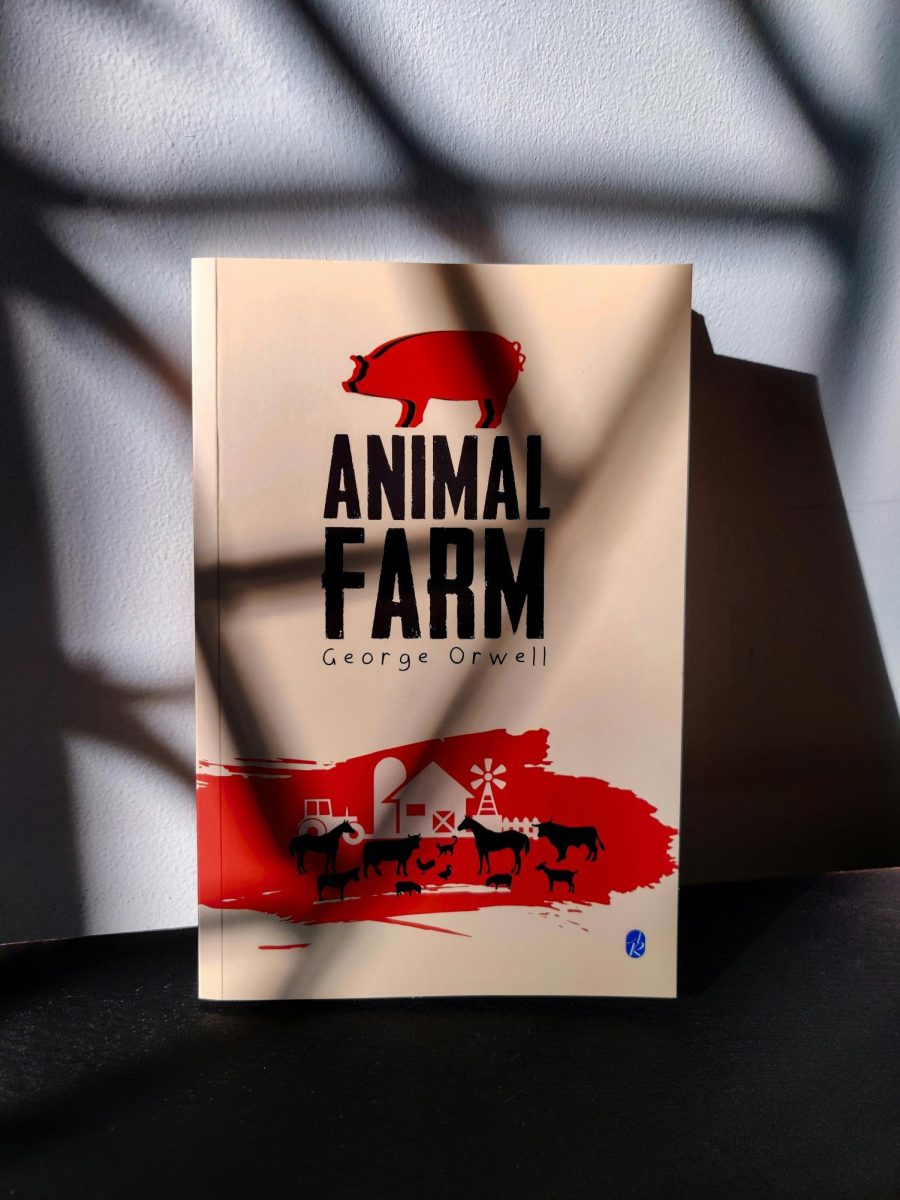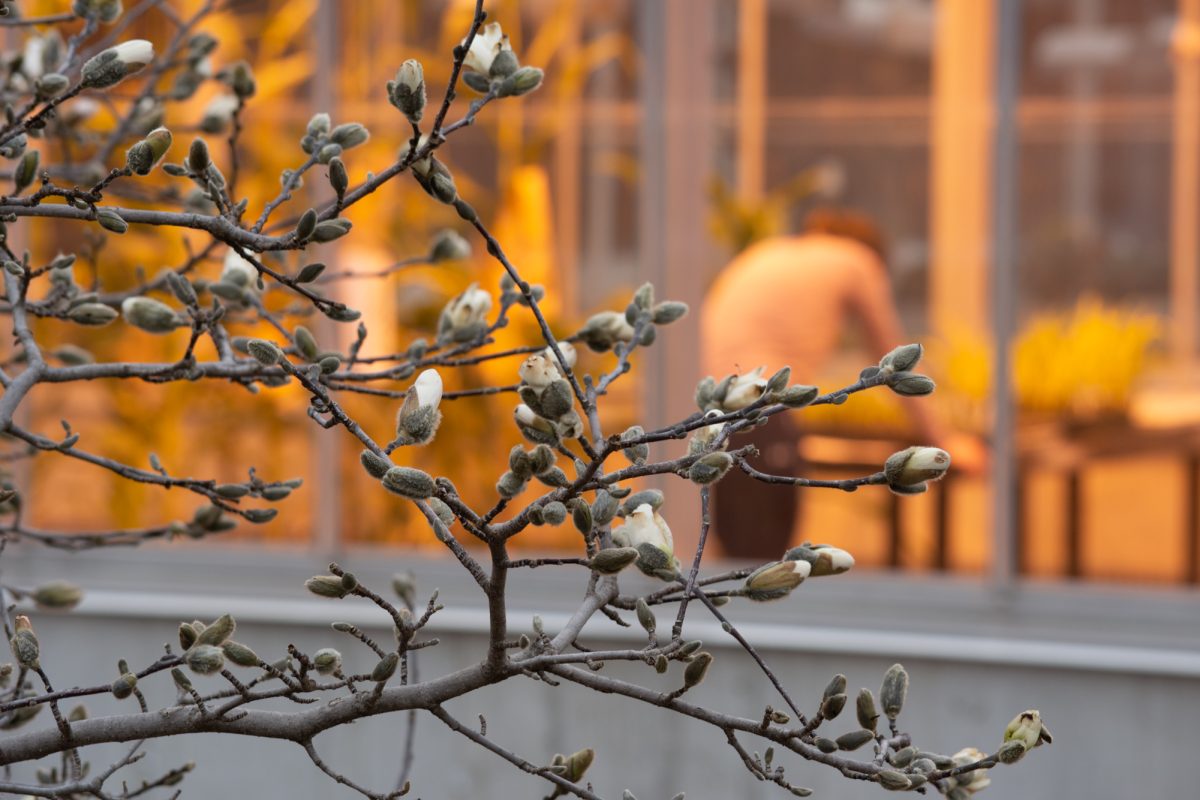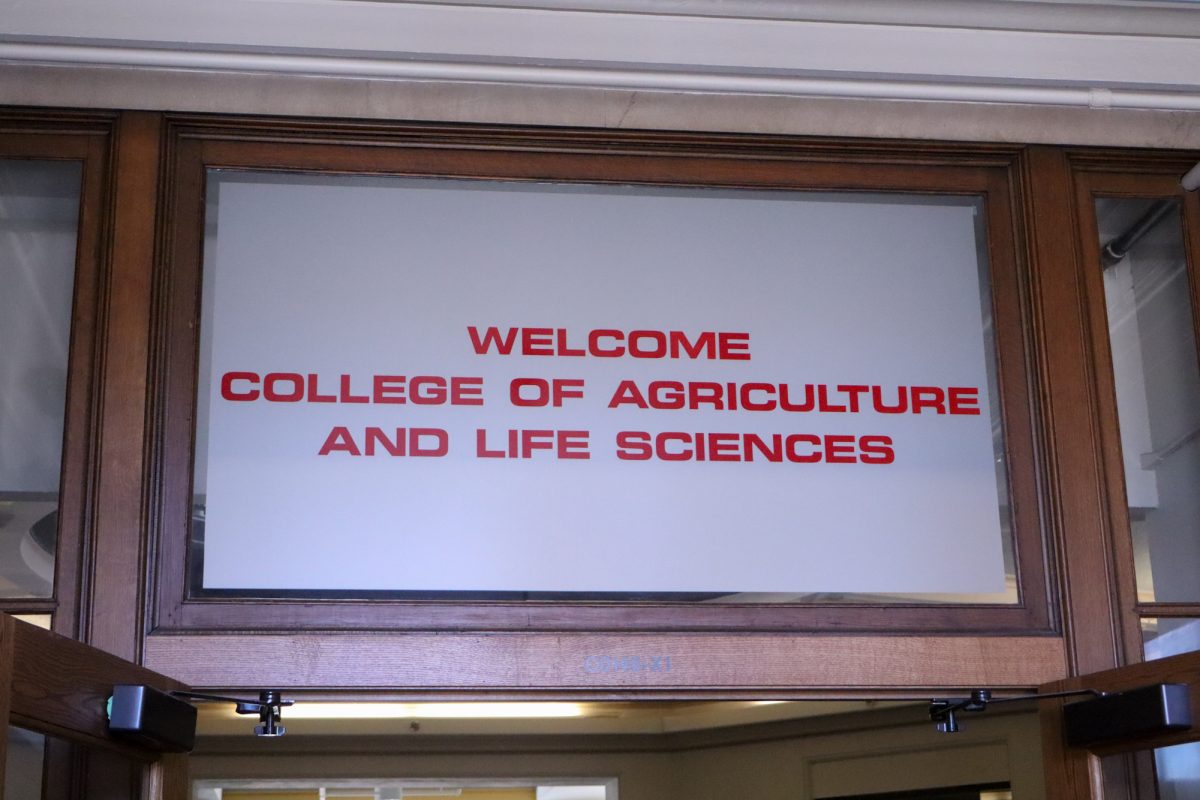Black asexual subjectivity, sexuality, more discussed in identity session
People from various colleges attend the 2019 Transforming Gender and Society Conference organized by the ISU Women’s and Gender Studies Program held in the Memorial Union on April 6. The conference touched on topics such as gender, sexuality, race, ethnicity and age.
April 7, 2019
Kyle Lindsey, a student attending Grinnell College, presented “Searching for Black Asexual Subjectivity,” in which he covered the historical context of black asexuality.
Lindsey focused on the mammy archetype, which he claimed was created to essentially add whiteness to black women and make it okay for whites to be seen with or near them. It was also created to move away from the sexualized “Jezebel archetype” with which black women had been associated with.
The modern mammy has been framed as an asexual object by her peers, Lindsey said. This connects to how middle-class aspiring blacks are framed in an asexual light, even though they may be heterosexual couples. The erasure of sexualness within this community and the white view applied to it has created a “Black Buddy” view of middle-class black families as being “nonsexual” and “friendly.”
Caedyn Krahling, a senior in women’s and gender studies, presented “Examining Gender and Sexuality Essentialism” in which they covered how when individuals within the LGBTQIA+ community are faced with discrimination they lean on the “born this way” narrative.
Krahling talked about how before the 20th-century, same-gender intimacy was natural and not as stigmatized as it became later. He also discussed how many cultures recognized other genders outside the binary such as the Hijra in India and the six genders in Jewish texts.
Essentialism is easy to adhere to, according to Krahling. This is where individuals within the LGBTQIA+ community fall back on the “born this way” narrative instead of accepting that change can happen. This can be damaging to the most vulnerable populations within the LGBTQIA+ community.
Gabi Anderson, who attends Central College, presented “Where ‘The Hate U Give’ Falls Short” in which she discussed how Angie Thomas, the author of “The Hate U Give,” lacked intersectionality in her writing.
Anderson said that the novel falls short on intersectionality by not including queer individuals within the black community and only includes cisgender and heterosexual people. Though the book includes many female characters, its progressivism lacks substance.
Anderson also brought up how the book included casual homophobia such as the quote from one of the main character’s friend: “You know what else people saying too. Got folks thinking you’re my girlfriend.”
The group “Just Us for Justice” in the novel is very vague, according to Anderson. It is not stated who the group is for or who it supports. Anderson also stated that Thomas held back in a hope to include more readers, but in the end, lost readers by not including the queer experience.
Mary Harrison-Joynt, a graduate student in human development and family studies, presented “Gender in Later Life” in which she covered the changes in the views of genders in later life.
Harrison-Joynt presented information on a study of 208 centenarians and octogenarians in Georgia of which 153 participants were women and 35 were men. Gender conformity was high within this population seen when the men felt that their loss of physicalness was the most impactful on them and the loss of activeness was the most impactful on women.
Women and men in this age group were found to be more empathetic toward humanity, according to Harrison-Joynt, a view often associated with feminity thus showing a less masculine trend in older adults. It was also shown that this age group tended to be less vulnerable and not conforming to the “frail’ stereotypes of older generations.
Jamal Poole-Preston, from Grinnell College, presented “Impacts of Market Viability on Closeted Identity” in which he covered how artists often stay closeted to retain market viability.
Poole-Preston talked about how artists have to choose what to do as they can lose their audience if they come out which can directly relate to their success.
Luther Vandross, an American singer and songwriter, was a staple and god figure within Pool-Peterson’s home when he was growing up, but when rumors of his sexuality came out the female members of home felt less in love with his music. On the other hand when Queen Latifah, an American rapper and actress, came on to the scene and started advocating for LGBT rights those same women were wanting her to come out.
Poole-Preston considered both of these figures legendary in their craft but they were never initiators in the talk of their sexualities, it was the audience.







